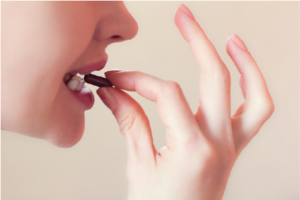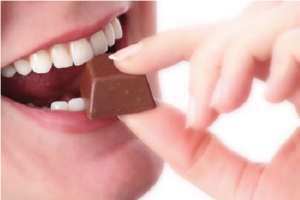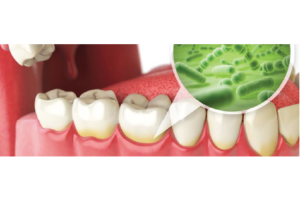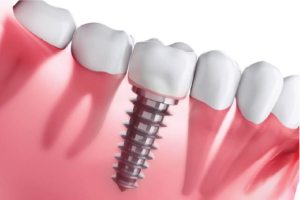Teeth grinding:
Watch for the physical signs during Covid-19

With COVID-19 spreading, people now understandably are more stressed than ever before. Extreme and prolonged stress can affect the body in many different ways. The anxiety evoked by the pandemic could damage even your teeth. Bruxism or teeth grinding and clenching is a negative habit triggered by stress. You may notice that you do it all day without realizing it. Teeth grinding or clenching may also happen during sleep and you wouldn’t be aware of it.
Signs of teeth grinding:
-Flattened, broken or chipped teeth
-Worn-out enamel exposing inner layers of teeth
-Teeth sensitivity and pain
-Mild headache on waking up
-Tired or sore jaw muscles, or a locked jaw not opening or closing completely
-Pain that feels like an earache
-Pain or tightness in the neck or shoulder
-Grinding sound at night and disruption of sleep
What causes teeth grinding?
A combination of physical, psychological, and genetic factors may be responsible for grinding. Stress or anxiety is one of the most common causes of bruxism. According to the Bruxism Association, smoking, heavy alcohol, caffeine, depression, and sleep disorders are all possible causes of teeth grinding. Having an aggressive, competitive, or hyperactive personality type can increase your risk for bruxism.
Remedies for teeth grinding:
If you suspect you grind or clench your teeth, please talk to your dentist. He or she may examine your mouth and jaw for bruxism signs, and suggest possible ways to correct the situation. Here are a few:
Stress or anxiety management: If you are grinding your teeth because of stress, learning strategies that promote relaxation, such as meditation and yoga, listening to music can help prevent the problem. Conversing with a therapist, counsellor, or trusted friend can help to reduce anxiety, depression, and stress.
Mouthguards: These are custom made appliances by your dentist which work by cushioning and stopping your teeth from grinding against each other while you’re sleeping and are considered as the treatment of choice. They are usually worn over your upper or lower teeth.
Medications: Your doctor may recommend short-term use of antidepressants or anti-anxiety drugs to help you cope with stress or other emotional problems that can cause grinding.
Self-care tips to avoid teeth grinding:
-Avoid or cut back on caffeinated foods and drinks, such as colas, chocolate, and coffee after dinner.
-Avoid alcohol. Grinding tends to intensify following alcohol consumption.
-Don’t chew on pencils or pens, or anything other than food. Avoid chewing gum, as it allows your jaw muscles to become more accustomed to clenching and makes your teeth more likely to grind.
-Practice proper sleeping habits. Getting a good night’s sleep, which can include sleep problem treatment, can help to reduce bruxism.
-Ask your family members to be aware of any grinding or clicking sounds you may make while you’re sleeping so that you can tell your dentist or doctor about this.
-Tongue and jaw muscle exercises can help you relax your jaw and facial muscles and keep your jaw properly aligned.
-You can also try to massage your jaw gently to loosen up your muscles.
If you’ve been told that you grind your teeth or clench your jaw, the problem can be exacerbated by stressful situations such as the current health crisis we endure. It is important to treat it early so as to avoid major dental complications. Both your dentist and your doctor are good resources for the diagnosis and treatment of bruxism.
Can medications affect your oral health?
Can medications affect your oral health? Prescription and over-the-counter (OTC)...
Read MoreCan diabetes affect your dental health
Can diabetes affect your dental health? India is now regarded...
Read MoreHow to take care of your removable dentures
How to take care of your removable dentures? A lot...
Read MoreDoes acid reflux from the stomach damage your teeth
Does acid reflux from the stomach damage your teeth? It’s...
Read MoreHow to take care of your dental implants
How to take care of your dental implants? Dental implants...
Read More
Dr. Paresh Lotlekar is a leading dental practitioner specialising in Periodontology & Oral implantology and the founder of STUDIO32 (studio32india.com), a chain of super speciality dental clinics in Goa.





